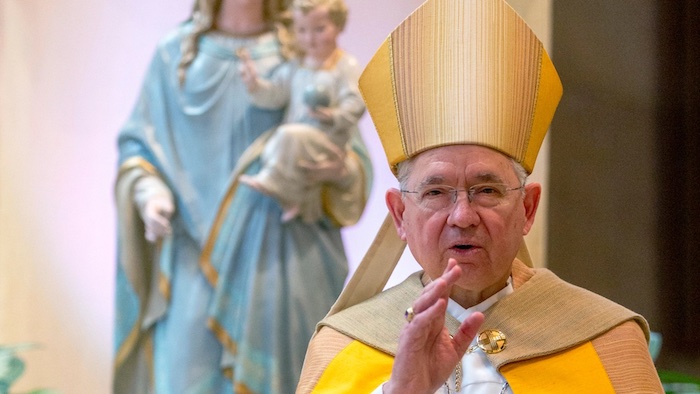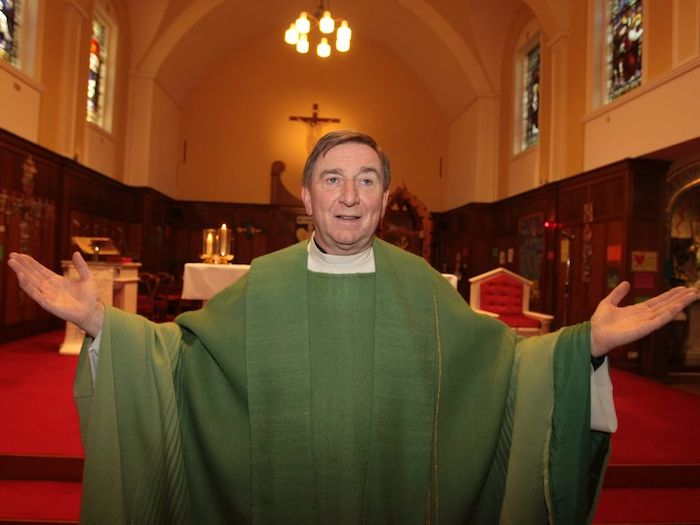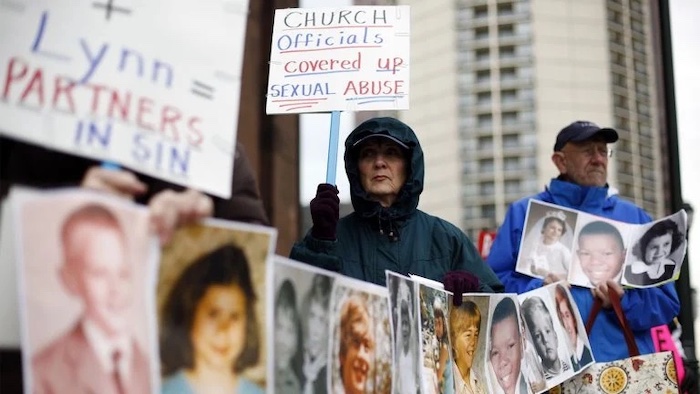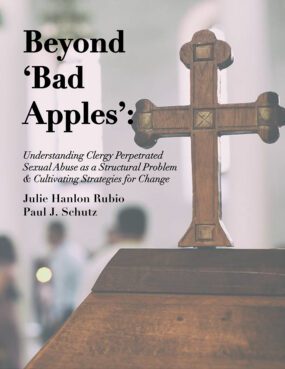
by John Kenneth White
The last two years have been tumultuous ones for the U.S. Conference of Catholic Bishops. On Inauguration Day 2021, its president, Archbishop Jose Gomez, sent a churlish message to Joe Biden, condemning him for pledging “to pursue certain politics that would advance moral evils and threaten human life and dignity, most seriously in the areas of abortion, contraception, marriage and gender.”
From there, the conference engaged in a prolonged discussion as to whether Biden and other prominent Catholic politicians, including House Speaker Nancy Pelosi (D-Calif.), should be denied communion — a ban that was imposed by Pelosi’s San Francisco archbishop, Salvatore J. Cordileone. After months of debate, the bishops punted on the issue and are currently spending $14 million to promote a National Eucharistic Revival.
With Gomez’s departure this month, the bishops were faced with selecting a new conference president. Over the past year, the Vatican has made it abundantly clear it is displeased with the American bishops and wants them more in alignment with Rome. In October, President Biden visited Pope Francis, and the pontiff went out of his way to call Biden “a good Catholic.”
A few months earlier, Speaker Pelosi and her husband, Paul, had an emotional meeting with the pope where she received a papal blessing and took communion at a Vatican mass. Prior to the bishops casting their votes for a new leader, the papal nuncio to the United States, Archbishop Christophe Pierre, pointedly reminded them that they were “cum Petro and sub Petro,” translating, “with Peter and under Peter.” He listed what Bishop John Stowe of Lexington, Ky., described as the pope’s “greatest hits,” with an emphasis on the environment, immigration and promoting a greater sense of brotherhood and sisterhood — priorities that Stowe laments the bishops have ignored.
Thirty minutes after Pierre’s remarks, Timothy Broglio was elected as conference president. Broglio is no stranger to the culture wars. As archbishop of the Military Services, he supported a U.S. Air Force chaplain whose homily blamed “effeminate” gay priests for clergy sexual abuse. Broglio has repeatedly claimed that the Catholic Church’s sexual abuse scandals are “directly related to homosexuality” — a position rejected by the John Jay College of Criminal Justice report, which found that “no single psychological, developmental, or behavioral characteristic differentiated priests who abused minors from those who did not.”
For two years, the worldwide Catholic Church has been engaged in a “synodal process,” a common term used for listening sessions. Repeatedly, the laity have expressed their desire that the church welcome migrants, ethnic minorities, the poor and divorced and remarried couples into its increasingly empty pews.
In its report to the Vatican, the bishops wrote, “Concerns about how to respond to the needs of these diverse groups surfaced in every synthesis.” But it was questions concerning LGBTQ Catholics that were especially troubling to the laity, with “practically all” consultations stating that the lack of welcome contributed to the hemorrhaging of young people from the faith. For his part, Pope Francis has gone to extraordinary lengths to convey his sense of fraternity with gay Catholics. This month, Francis welcomed Fr. James Martin, well-known in the U.S. for his outreach ministry to gay Catholics, to an extraordinary private meeting to discuss his ministry and offer support, previously telling Fr. Martin to “continue this way.”
Addressing the conference, Baltimore Archbishop William Lori, it’s newly elected vice president, said, “We cannot credibly speak in a polarized society as long as our own house is divided.” But like so many other institutions, the Catholic Church has fallen victim to today’s cultural chasms. For some Catholics, the solution lies in a smaller, more homogenous, and culturally conservative church, set apart from a secular world that it so easily condemns, and producing leaders who are willing to wage war with the cultural politics of the moment.
For others, the choice is to be pastoral, listening without condemning and meeting people “where they are.” Pope Francis clearly prefers the latter approach, writing that when “victory consists in eliminating one’s opponents, how is it possible to raise our sights to recognize our neighbors or to help those who have fallen along the way?”
Bishop Stowe laments that the U.S. Conference of Catholic Bishops is becoming “more and more irrelevant” to the average Catholic, while other organizations are filling the void — including Catholic Relief Services, Catholic Charities, Caritas and the Catholic Campaign for Human Development.
Over the past two decades, one thing is clear: The bishops make for lousy politicians. But they could be pretty good pastors. It’s their choice.
Complete Article ↪HERE↩!






.jpg)


